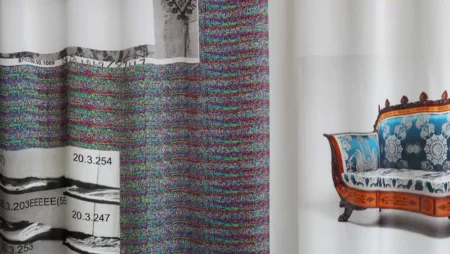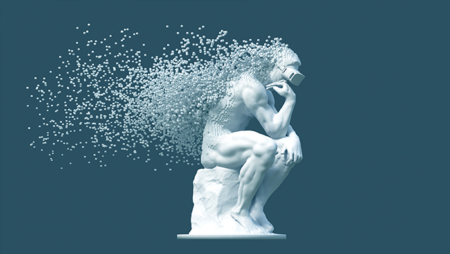
Research Programme on AI & Work
This programme supports research in the sphere of AI & Work.
Laura is a DPhil student on the Information, Communication, & the Social Sciences course, funded by a UKRI Arts and Humanities Research Council studentship. Laura previously completed an MSc in the Social Science of the Internet. Her MSc thesis research took a mixed-methods approach to produce a viewer-defined conceptualization of online digital creativity, while her DPhil examines the curatorial role of algorithmic systems in the art world. Her research takes an inclusive and international approach with a particular focus on the Global South.
A common thread runs through Laura’s research: an investigation of how emerging technology influences human creativity. Her understanding of the creation process has been deepened by her own artistic practice, through which she has exhibited projects at the Tate and Ars Electronica. Laura has also collaborated with the Serpentine Galleries on their Future Art Ecosystems report, and she has been a “researcher-in-residence” at Studio Olafur Eliasson.
As part of Laura’s DPhil at the OII, she produced The Algorithmic Pedestal, a London exhibit which questioned the increasingly curatorial role of algorithmic systems by comparing curation by an AI with curation by a human artist. This project was conducted using Instagram’s algorithmic system and the Metropolitan Museum of Art’s collection. The exhibit was covered by the BBC, Forbes, Artnet, Wallpaper*, and New Scientist, drawing a large public audience that was invited to co-create community notions of curation through grassroots exhibit participation.
Alongside her academic pursuits, Laura is the Head of AI Research at Adobe, where she leads a team of UX researchers focussed on Generative AI across Creative Cloud. Previous creative applications that she’s worked on have been acknowledged as Apple’s “App of the Day” and as a Webby People’s Choice Award winner.
Previously, Laura has held research roles at Intel, Harvard University, and Princeton University, from which she graduated with honors in Neuroscience & Psychology. Laura also sits on the Boards of Trustees for two UK-based arts organizations: Eastside, which provides creative education for historically marginalized youths, and Oxford’s Old Fire Station, which serves as an artistic hub for people experiencing homelessness.
Creativity; design research; digital art; algorithms; Global South; accessibility; inclusive research

This programme supports research in the sphere of AI & Work.

The Algorithmic Pedestal was an exhibit held from January 11-17th, 2023 at J/M Gallery in London. It constituted an exhibit-based research project showcasing images curated by London-based artist Fabienne Hess alongside images curated by Instagram.

This project interrogates the impact of AI on cultural heritages and the presentation of these futures through public-facing exhibition spaces. It will interrogate the agency of AI within exhibit contexts, exploring its role in creativity.

With Aaron Hertzmann
Can AI algorithms make art, and be considered artists?

With Professor Andrew Przybylski, Candice Odgers, and Professor John Horton
Professor Przybylski speaks one-on-one with Professor Candice Odgers (UC Irvine) in a virtual fireside chat moderated by Professor John Horton (MIT), discussing parenting, social media and mental health.

27 October 2023
The OII is leading the debate on Artificial Intelligence. Generative AI has been a key area of interest for faculty, researchers and students for many years. This article brings together some of this work to date and highlights forthcoming work.

8 December 2022
As algorithms infiltrate our visual culture, what impact do they have on how audiences perceive creative content? University of Oxford researchers question the role of algorithmic curation in a forthcoming London exhibit.

PC Magazine, 24 April 2024
Machine learning researchers at Stanford have developed an innovative way to moderate online content—one that could potentially make the web less polarizing and divisive.

Newsweek, 10 March 2023
Artificial Intelligence (AI) can read your mind…if you are hooked up to an fMRI machine and it is trained on how you process visual information.

BBC Radio 4, 27 February 2023
Algorithms are not just changing how we create art, they’ve been curating everything we see and hear online for years.

Associate Professor, Senior Research Fellow
Kathryn Eccles has research interests in the impact of new technologies on Humanities scholarship, and the re-organisation of cultural heritage and higher education in the digital world.

Former Professor of Technology & Society
Professor Neff is the Executive Director of the Minderoo Centre for Technology & Democracy at the University of Cambridge. She is a sociologist who studies innovation, the digital transformation of industries, and how new technologies impact work.